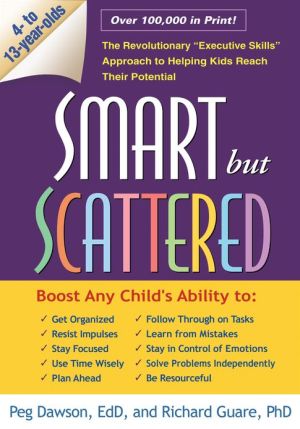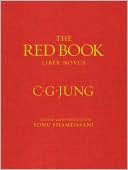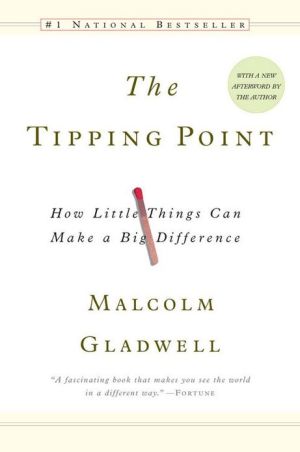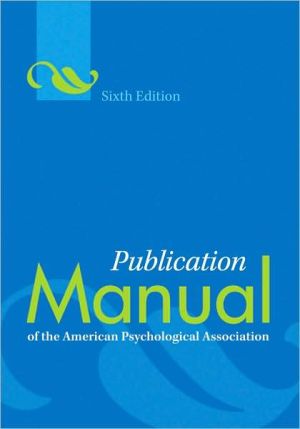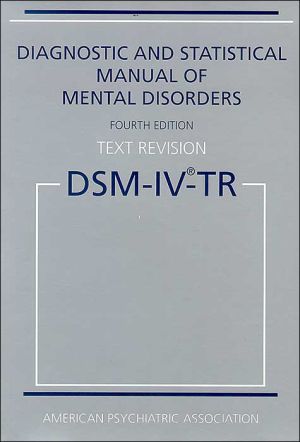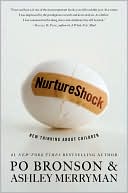Smart but Scattered: The Revolutionary ''Executive Skills'' Approach to Helping Kids Reach Their Potential
There's nothing more frustrating than watching your bright, talented son or daughter struggle with everyday tasks like finishing homework, putting away toys, or following instructions at school. Your "smart but scattered" child might also have trouble coping with disappointment or managing anger. Drs. Peg Dawson and Richard Guare have great news: there's a lot you can do to help. The latest research in child development shows that many kids who have the brain and heart to succeed lack or lag...
Search in google:
There’s nothing more frustrating than watching your bright, talented son or daughter struggle with everyday tasks like finishing homework, putting away toys, or following instructions at school. Your “smart but scattered” child might also have trouble coping with disappointment or managing anger. Drs. Peg Dawson and Richard Guare have great news: there’s a lot you can do to help. The latest research in child development shows that many kids who have the brain and heart to succeed lack or lag behind in crucial “executive skills”--the fundamental habits of mind required for getting organized, staying focused, and controlling impulses and emotions. Learn easy-to-follow steps to identify your child’s strengths and weaknesses, use activities and techniques proven to boost specific skills, and problem-solve daily routines. Small changes can add up to big improvements--this empowering book shows how. Shawna Thorup - Library Journal Two groundbreaking guides explore a burgeoning parenting topic. Executive functioning/executive skills are a series of cognitive skills that regulate behavior and help accomplish tasks, e.g., impulse and emotional control or planning and organizing work. When these skills are weak, children's behavior can be frustrating and vexing for parents who show strength in the particular skills with which their child struggles. Both guides emphasize children's nonperformance as caused by inability, and both illustrate how to improve functioning. Clinical psychologists Cooper-Kahn and Dietzel offer a practical approach through detailed explanations, explorations of causes and effects, and strengthening techniques. Especially helpful are a professional assessment how-to and abundant tips for advocacy at school.Using a similar tack, Dawson, a psychologist, and Guare, a neuropsychologist, follow up on their clinician-specific Executive Skills in Children and Adolescents, with more compassionate and parent-friendly results. They include age-specific questionnaires to assess skills in both child and parent and focus on the fit between children's and their parents' strengths and weaknesses in skill-building techniques and daily living. Notable are several useful checklists and a clear framework for intervention. While both titles include resource lists and clinical examples, Dawson and Guare's personal anecdotes lend immediacy. They also provide lists of toys and games to promote skill development and several relevant web sites. Overall, Smart but Scattered is the more comprehensive, accessible, and hopeful title. Donna Goldberg and Jennifer Zwiebel's The Organized Student:Teaching Children the Skills for Success in School and Beyond showed the tip of the iceberg, and other books devoted exclusively to Asperger's syndrome or ADHD cater to a specific audience. As the first books on the subject to speak directly, comprehensively, and universally to parents, both titles are recommended for parenting collections in public and school libraries; Dawson and Guare's work should be considered essential.
Pt. I What makes your child smart but scatteredPt. II Laying a foundation that can helpPt. III Putting it all togetherResourcesIndex
\ Children's Literature - Cathi I. White\ Teachers and parents cannot figure it out. How can children who score so high on achievement tests not pay attention in class, follow directions, or finish assignments? They should be able to do these tasks; after all, they are smart. So what is the problem? These children lack executive skills. Executive skills are used to put their intelligence into practice. There are eleven skills that include task initiation, sustained attention, organization, flexibility, planning and prioritizing. Children need executive skills to be able to perform a task. This educational book is dedicated to showing parents how to improve a child's executive skills. First, the authors give strategies on how to motivate the child to use his executive skills, such as working with a behavior sheet. Secondly, they suggest interventions for teaching the child twenty daily routines. These routines include completing chores, bedtime, homework, cleaning his desk, studying for tests, controlling his temper, and solving problems. Interventions consist of checklists that help organize each specific area, practicing that routine, supervision, and adjustments that may be needed. Next, Dawson and Guare take the eleven skills and give different approaches to build each skill. For instance, with task initiation, the parent should break the task into smaller pieces, give visual prompts, prompt the child to start the task, and teach him not to procrastinate. These kinds of plans can help a child strengthen his executive skills, be able to focus better and complete tasks. Also included in this book are resources such as books, magazines, toys and games to promote executive skills. In addition, websites are listed to help the reader. Parents, as well as educators, will benefit greatly from this outstanding resource in developing a child's executive skills. Reviewer: Cathi I. White\ \ \ \ \ Library JournalTwo groundbreaking guides explore a burgeoning parenting topic. Executive functioning/executive skills are a series of cognitive skills that regulate behavior and help accomplish tasks, e.g., impulse and emotional control or planning and organizing work. When these skills are weak, children's behavior can be frustrating and vexing for parents who show strength in the particular skills with which their child struggles. Both guides emphasize children's nonperformance as caused by inability, and both illustrate how to improve functioning. Clinical psychologists Cooper-Kahn and Dietzel offer a practical approach through detailed explanations, explorations of causes and effects, and strengthening techniques. Especially helpful are a professional assessment how-to and abundant tips for advocacy at school.\ Using a similar tack, Dawson, a psychologist, and Guare, a neuropsychologist, follow up on their clinician-specific Executive Skills in Children and Adolescents, with more compassionate and parent-friendly results. They include age-specific questionnaires to assess skills in both child and parent and focus on the fit between children's and their parents' strengths and weaknesses in skill-building techniques and daily living. Notable are several useful checklists and a clear framework for intervention. While both titles include resource lists and clinical examples, Dawson and Guare's personal anecdotes lend immediacy. They also provide lists of toys and games to promote skill development and several relevant web sites. Overall, Smart but Scattered is the more comprehensive, accessible, and hopeful title. Donna Goldberg and Jennifer Zwiebel's The Organized Student:Teaching Children the Skills for Success in School and Beyond showed the tip of the iceberg, and other books devoted exclusively to Asperger's syndrome or ADHD cater to a specific audience. As the first books on the subject to speak directly, comprehensively, and universally to parents, both titles are recommended for parenting collections in public and school libraries; Dawson and Guare's work should be considered essential.\ —Shawna Thorup\ \ \ \ From the Publisher"The best parent resource on executive skills that I have seen. As a parent of three children, one of whom has learning disabilities, and as a special education associate who works in the classroom, I highly recommend this book. It shows there is hope for children who are struggling, and offers practical, detailed advice."--L. Libbey, parent, Hampton, NH\ "Filled with real-world examples and solutions, this easy-to-read book is the first comprehensive guide to the management of children's executive skills. It gets to the heart of the matter, offering both parents and teachers accessible and highly efficient means to cope with a gamut of obstacles faced by children of all ages and abilities."--Kristina Mecelicaite, MEd, special education coordinator, North Central Charter Essential School, Fitchburg, MA\ "Do you feel stymied by your child's failure to live up to his or her potential? Have you run out of ideas about how to handle the situation? Look no further--this fascinating and readable book is packed full of useful ideas that will help you understand what the problem is and how you can help. It presents practical and proven techniques based on rigorous scientific research."--Peter Farrell, PhD, University of Manchester, UK; past president, International School Psychology Association \ "If you've ever wondered why your child struggles academically or behaviorally--despite having the 'right stuff' to succeed--this book is essential reading. Drs. Dawson and Guare explain the importance of executive skills and provide science-based strategies that empower you to start helping your child today."--Sam Goldstein, PhD, coauthor of Raising Resilient Children\ "Drs. Dawson and Guare translate cutting-edge research into meaningful, practical, well-organized, and easy-to-implement strategies that parents can use to enhance a child's natural executive abilities. This brilliant book is by far the best on the topic that I have read to date."--Russell A. Barkley, PhD, ABPP, author of Taking Charge of ADHD\ \ \ \ \ \ Journal of the Canadian Academy of Child and Adolescent Psychiatry"Fun to read....This book is quite interactive....Questionnaires are provided both for children (of various ages) as well as parents, so that they can both see their strengths and weaknesses....Techniques to teach executive skills are shown in a step-wise manner, and planning sheets are available throughout the text....Another strength of this book is its focus on the emotional aspect of executive functioning, and providing strategies to bolster the emotional skill set of children....Strongly recommended for any parent who wishes to help their children maximize their potential, even if they do not have identified academic or behavioral struggles."--Journal of the Canadian Academy of Child and Adolescent Psychiatry\ \
